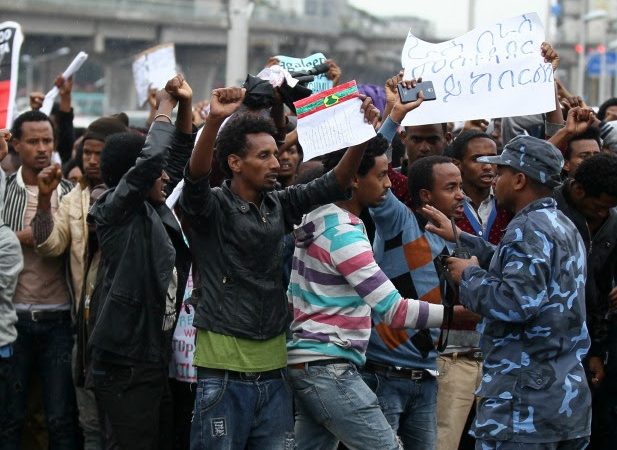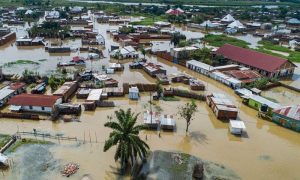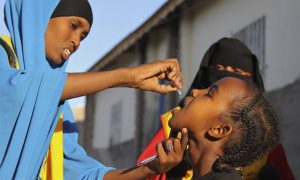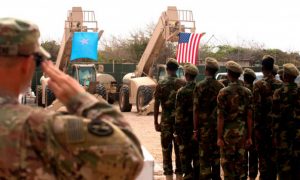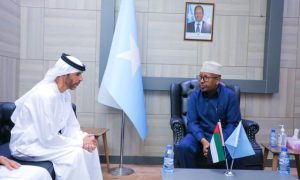
This is a guest post by Zara Riaz, a research specialist in the Politics Department at Princeton University.
Muqdisho, September 13, 2016: In the Horn of Africa, Ethiopia stands out among neighbors for its political and economic stability. Recent protests and escalating violence, however, expose Ethiopia’s longstanding political tensions and pose a serious threat to the government’s ability to maintain its strong hold.
Last November, protests spread across Ethiopia’s Oromia region. The Oromo, Ethiopia’s largest ethnic group constituting over 30 percent of the country’s population, demanded an end to the government-sponsored Addis Ababa Integrated Master Plan, which would have extended the capital city’s limits further onto Oromo territory. The government, dominated by the Tigray minority group representing only 6 percent of the country’s population, announced plans to cancel the initiative in January. Nevertheless, many Oromo have continued to protest their political, economic, and cultural marginalization.
Discrimination on the basis of ethnicity is not unique to the Oromo. The Ethiopian constitution explicitly grants self-determination and the protection of cultural rights for all ethnic groups, however, these rights are far from realized for the majority of the country’s population. For example, speaking Oromiffa is frequently used to identify actual or suspected members of the Oromo Liberation Front, an organization to promote Oromo self-determination that has been labeled as a terrorist organization by the Ethiopian government. As a result, many Oromos do not feel free to speak their language in public. Protests over officially sanctioned land grabbing have also spread across the Amhara region, home to Ethiopia’s second largest ethnic group, the Amhara. Demonstrations among both groups are highlighting that though the country is celebrated for its strong economic growth, only an elite minority benefits. For example, fertile land in Oromia generates roughly 60 percent of Ethiopia’s economic resources, yet the Oromo are repeatedly denied the benefits accruing from these resources. In fact, Oromo land is being used for flower farms in an effort to compete with Kenya for the European market, yet a local resident claims that the government “took 90 percent of the payment and gave 10 percent to the people.”
In response to demonstrations, the government is brutally cracking down on dissenters. During the first weekend of August, protests resulted in over one-hundred civilian causalities, while the death toll since the initial protests in November exceeds five-hundred. In the past, government opposition has been routinely interpreted as a threat to national unity and addressed as an act of terrorism. But, current demonstrations by two groups representing over 60 percent of the country’s population will make it more difficult to employ such tactics without igniting further unrest and anger. Though the government in the past has taken advantage of the decades long rivalry once characterizing the relationship between the Oromo and Amhara, the protests are giving birth to a sense of solidarity between the groups in demanding greater representation.
These protests across Amhara and Oromo regions and the deteriorating human rights situation in the country cannot be ignored by the international community. Up to now, Western reluctance to condemn the government’s actions has been tied to Ethiopia’s important role in the fight against terrorism in the region. The Western response, which has so far included urging the government to allow international observers in parts of the country and expressing “concern” over the government’s actions, is weak, given the country’s deteriorating situation. The international community should act now to curb the government’s brutality against the protesters to decrease the likelihood of long-term instability in Ethiopia.
.
Source: Africa in Transition
———————————
Qaranimo Online | Muqdisho
_____________________________________________________________________________________
Xafiiska Wararka Qaranimo Online | Mogadishu, Somalia
_____________________________________________________________________________________Advertisement
_____________________________________________________________________________________


